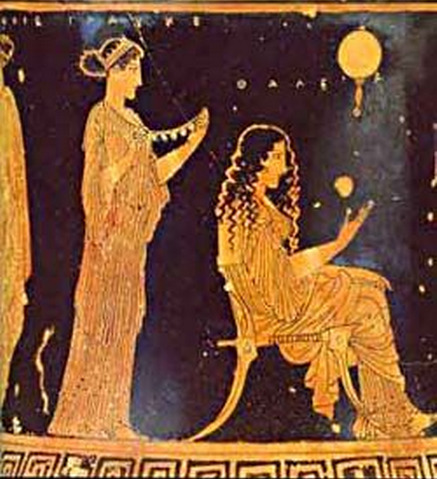thenerdsaurus:Some brilliant female scientists you may not know much (or anything) of.Aglaonike (2nd
thenerdsaurus:Some brilliant female scientists you may not know much (or anything) of.Aglaonike (2nd century BCE), was an astronomer from Ancient Greece during the fifth century. She is on the list of first astronomers who was a woman. She was notorious for being able to predict the accurate time and locations of lunar eclipses. However, because she was a woman her contributions were not believed to be a scientific ability.People often began to believe she was a witch and gave her the name of the witch of Thessaly. Aglaonike has been mentioned in writings of Pluto, Plutarch, and Apollonius of Rhodes. Elena Cornaro Piscopia (1646–1684), Italian mathematician was probably the first woman in the world to receive a Doctor of Philosophy degree; she is definitely the first woman to have been recorded doing so.She was a respected and noted philosopher and theologist, although she never received a degree in the latter because the church would not allow it. Philippa Fawcett (1868-1948) When she placed first in the Cambridge mathematical tripos in 1890, she forced a reassessment of nineteenth-century belief in the inferiority of the “weaker sex.”Rosalyn Sussman Yalow (1921–) became the second woman to ever win the Nobel Prize in medicine, 1977. Her achievement was the development of RIA, an application of nuclear physics in clinical medicine that makes it possible for scientists to use radiotropic tracers to measure the concentration of hundreds of pharmacologic and biologic substances in the blood and other fluids of the human body and in animals and plants.She invented this technique in 1959 to measure the amount of insulin in the blood of adult diabetics. -- source link
Tumblr Blog : thenerdsaurus.tumblr.com
#brilliant#female scientists#aglonike#astronomer#mathematician#philippa fawcett#ria#insulin



